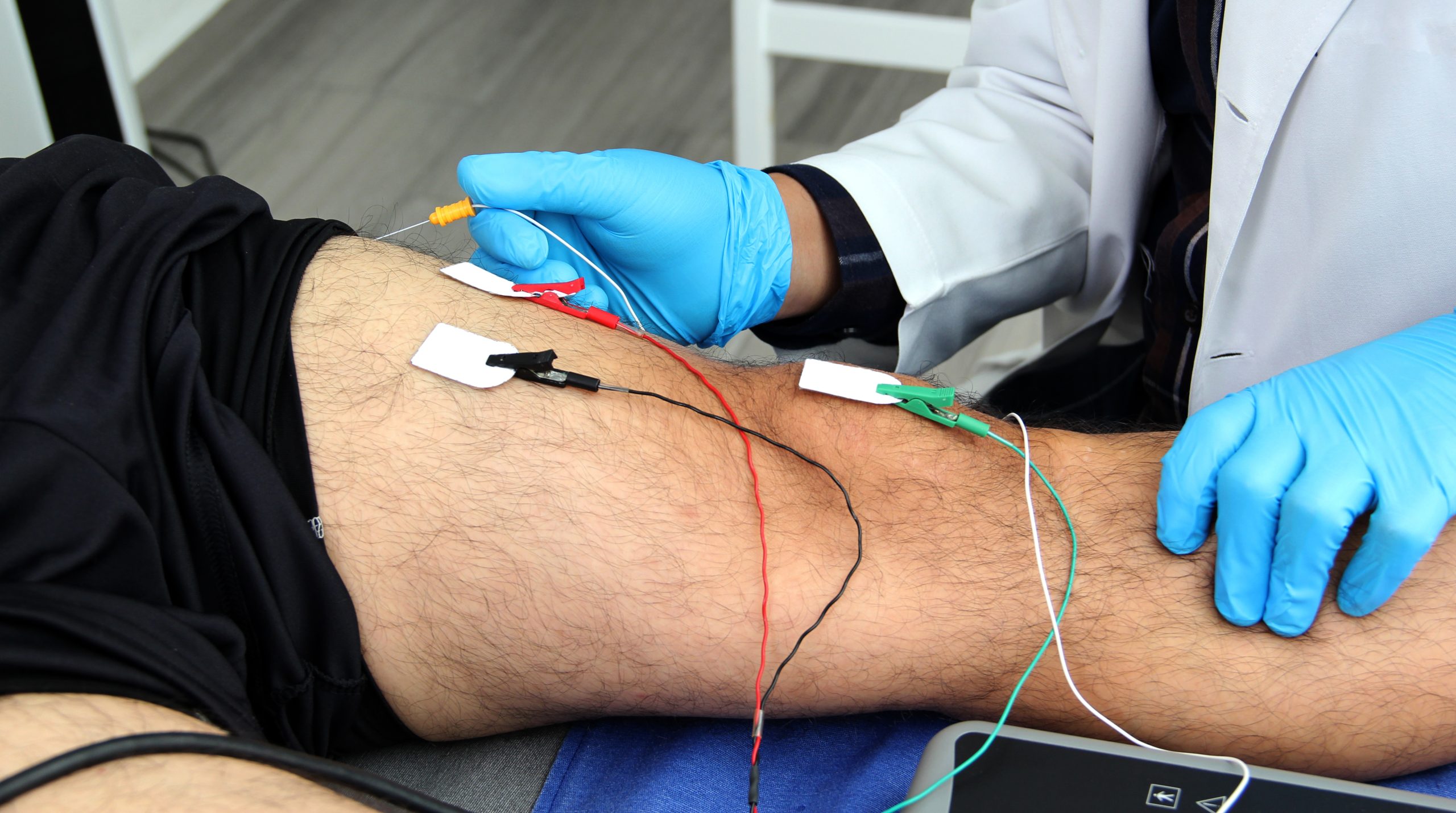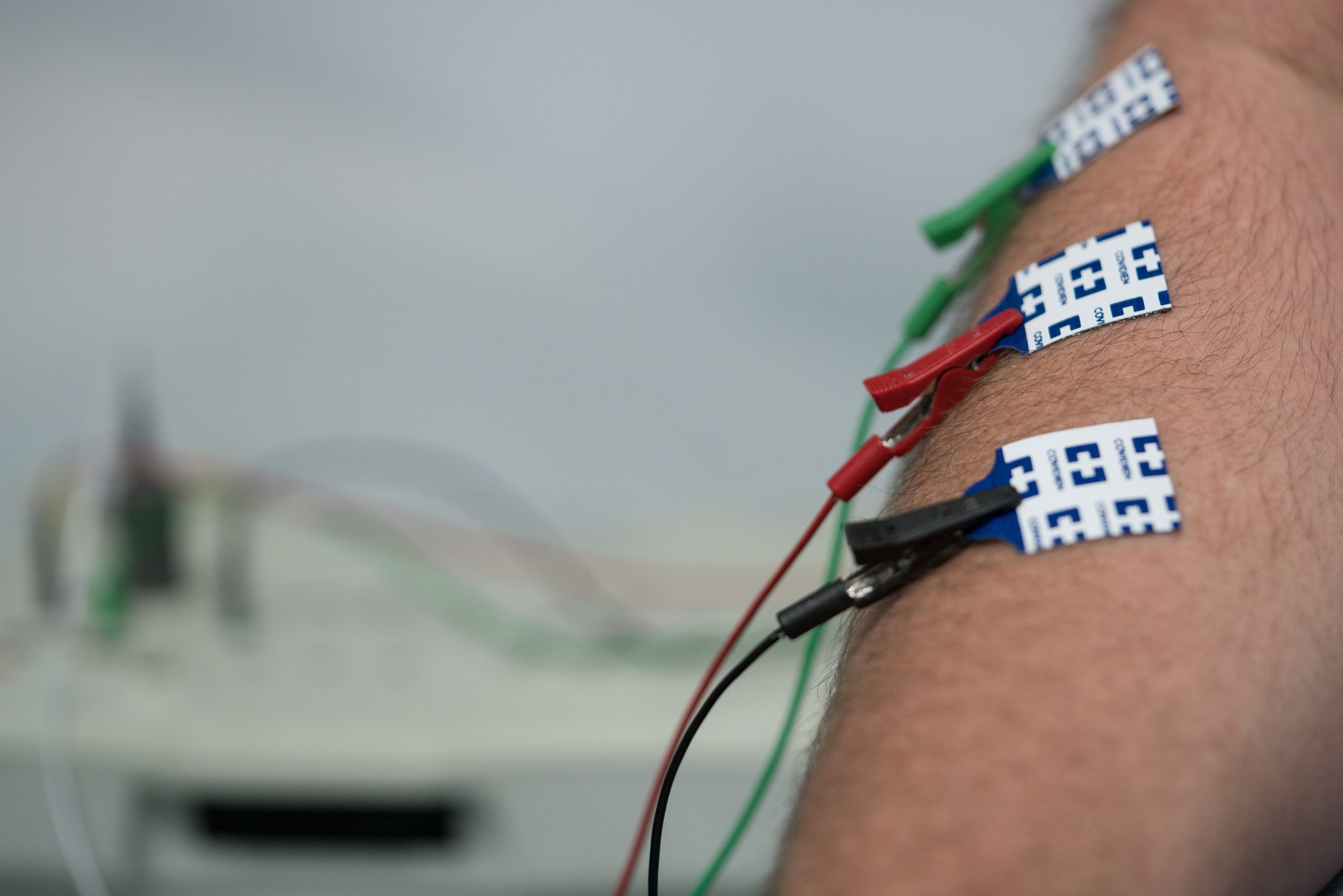EMG
Electromyography (EMG) is a specialized diagnostic procedure used to assess the health of muscles and the nerve cells that control them. This test is instrumental in diagnosing various conditions that cause muscle pain, weakness, and other symptoms, playing a critical role in pain management strategies.

Why Might You Need an EMG?
EMG is typically recommended for patients experiencing unexplained muscle weakness, pain, or numbness. It helps diagnose conditions affecting muscles and nerves, including:
- Peripheral Neuropathy: Damage to the peripheral nerves, often causing pain and numbness.
- Muscle Disorders: Conditions like muscular dystrophy and polymyositis.
- Motor Neuron Diseases: Disorders like amyotrophic lateral sclerosis (ALS).
- Neuromuscular Junction Disorders: Such as myasthenia gravis.
- Radiculopathies: Including herniated discs causing nerve root compression.
What Are the Steps in an EMG Procedure?
Preoperative Preparation
- Medical Evaluation: Before the procedure, a thorough medical evaluation is performed to understand your symptoms and medical history.
- Instructions: Patients are advised to avoid caffeine and smoking on the day of the test and to inform the doctor of any medications they are taking.
During the Procedure
- Needle Electrode Insertion: A needle electrode is inserted through the skin into the muscle tissue. This may cause slight discomfort or pain.
- Nerve Conduction Study (NCS): Electrodes are taped to the skin, and small electrical currents are sent through the nerve, causing a tingling sensation.
Postoperative Care
- Immediate Aftercare: The needle insertion sites may be slightly sore for a few hours. Patients can resume normal activities immediately.
- Results Interpretation: The results of the EMG are interpreted by a specialist, and a detailed report is provided to guide further treatment.

Recovery and Rehabilitation
Postoperative Care
- Soreness Management: Mild soreness at the needle sites can be managed with over-the-counter pain medications.
- Follow-Up: Follow-up appointments are scheduled to discuss the results and plan the next steps in treatment.
Potential Complications
While EMG is generally safe, there are minor risks, including:
- Slight Pain or Bruising: At the needle insertion sites.
- Infection Risk: Though very rare, it’s possible.
- Nerve Injury: Extremely rare but possible.
Benefits of EMG in Pain Management
- Accurate Diagnosis: Helps pinpoint the exact cause of muscle pain and weakness.
- Tailored Treatment: Provides detailed information for a personalized treatment plan.
- Effective Monitoring: Monitors the progression of conditions and the effectiveness of treatments.
Find a Pain Management Doctor
Find a Location
MENDELSON KORNBLUM PAIN MANAGEMENT - LIVONIA
For appointments contact
Scheduling: 855.750.5757
For billing questions
Billing: 586.439.6242
Fax: 734.542.0220
MENDELSON KORNBLUM PAIN MANAGEMENT - WARREN
For appointments contact
Scheduling: 855.750.5757
For billing questions
Billing: 586.439.6242
Fax: 586.261.1961
Fax (Pain Management): 586.838.1603
MENDELSON KORNBLUM PAIN MANAGEMENT- STERLING HEIGHTS
For appointments contact
Scheduling: 855.750.5757
Contact Us
If you are experiencing chronic muscle pain, weakness, or numbness, EMG could be a critical step in your pain management journey. Our experienced healthcare providers are here to help you understand your symptoms and develop an effective treatment plan.



